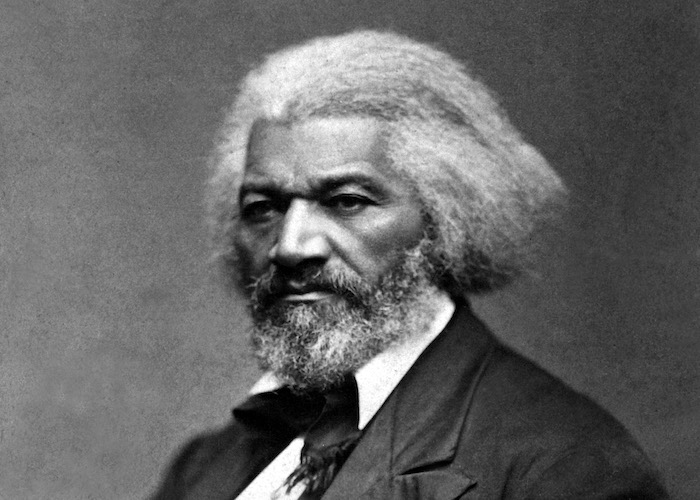
In his prolific decades-spanning career, Spike Lee has unnerved audiences, challenged the status quo, and forefronted pertinent issues like racism, police brutality, and urban violence — without ever abandoning his signature sharp-witted humor and brazen, confrontational directorial approach. Many fans consider the director’s heyday to span across the late ’80s into the mid-’90s, the era of Do the Right Thing, Malcolm X, and Clockers. Lately, though, Lee has proven that he’s still more than capable of crafting provocative, entertaining films.
This year, BlacKkKlansman received rapturous praise and surprising box office success. In 2017, Lee adapted the breathless one-man play Rodney King from his muse and longtime collaborator, the writer/actor Roger Guenveur Smith. The duo shows no signs of slowing down; per Variety, Lee will direct Frederick Douglass Now, which will capture one of the most seminal figures in American history: abolitionist Frederick Douglass.
Frankly, Frederick Douglass Now is long overdue for a film adaption, as Smith has been performing the progressive play for over two decades. Inspired by the life and legacy of Douglass, it is based on the extraordinary writer and social reformer’s various prophetic essays and letters. The incisive, trenchant play situates these historical artifacts within a distinctly 21st-century context — hence the “now” in the play’s title. Smith quotes Douglass’ texts while infusing the performance with poetry, rap, and references to contemporary race relations in the US. The conflation of Douglass’ 19th-century writings with modern tropes coalesce into a nuanced exploration of American’s social progress and, more importantly, how far the country has to go to reach racial justice and equality.
Frederick Douglass Now marks Lee’s third film adaption of one of Smith’s solo performances. It will follow both the acclaimed A Huey P. Newton Story, which chronicles the life of Huey P. Newton, the revolutionary co-founder of the Black Panther Party and Rodney King, which focuses on Rodney King, whose subjection to police brutality catalyzed the 1992 Los Angeles riots. Throughout his career, Lee has additionally featured Smith in small but distinct and memorable roles in some of the director’s greatest work, including Do the Right Thing, He Got Game, and Malcolm X.
Frederick Douglass Now has the potential of continuing Lee and Smith’s success at cinematically adapting plays that focus on Black historical figures. In A Huey P. Newton Story and Rodney King, Lee’s somewhat restrained direction deeply compliments, if not enhances, Smith’s mesmerizing, tremendously physical acting. In A Huey P. Newton, Lee heightens Smith’s theatricality with manic editing and off-kilter camera angles, all the while inserting archival footage and photos to ground Newton’s larger-than-life persona in reality. In Rodney King, Lee saturates the stage with flashing police lights and uses rapid cuts to accompany Smith’s (as King) recounting of his 1991 police beating. Consistently, Lee emphasizes the raw emotion and strength of Smith’s performances without ever detracting from them.
Aside from his adaption of Smith’s plays, Lee has long proven his gift for imbuing a story of a figure from the past with unapologetic, topical allusions to the present political moment. His keen ability to use the past to scrutinize the present is most recently on display in the startling BlacKkKlansman. While the film predominantly explores Ron Stallworth’s ventures in the Colorado Springs police department amid rampant racism in the early 1970s, BlacKkKlansman concludes with footage from the 2017 Unite the Right rally in Charlottesville. With this abrupt shift in time and place, Lee powerfully demonstrates how racial racism didn’t merely disappear after the turbulent ’70s. Rather, due to the complacency and ignorance of the public, mainstream politicians, and the media, white supremacy continues to manifest itself in deadly and loathsome ways. Lee’s connections between the ’70s and the present day are alarming and perhaps disillusioning but vital for highlighting the abhorrent extent of the political and cultural failures defining the 21st century.
https://www.youtube.com/watch?v=_U7tWkFymn0
If BlacKkKlansman and his recent work with Smith is any indication, Lee is the same daring filmmaker who made Do the Right Thing nearly 30 years ago and, therefore, a suitable director for bringing Douglass’ story to our screens. Together, Smith and Lee have put African Americans front and center for their entire careers; they have employed fearless approaches to social themes; they have used the past to show the social progression — or lack thereof — of modern society. A master of urgent, visceral filmmaking, Lee is the perfect director to render Smith’s piercing and perceptive Frederick Douglass Now. Considering the talent behind and in front of the screen, we should except the film to boldly connect the incidents of Douglass’ incredible life to the turmoil of today’s political landscape.
Related Topics: Blackkklansman, Frederick Douglass Now, Roger Guenveur Smith, Spike Lee

